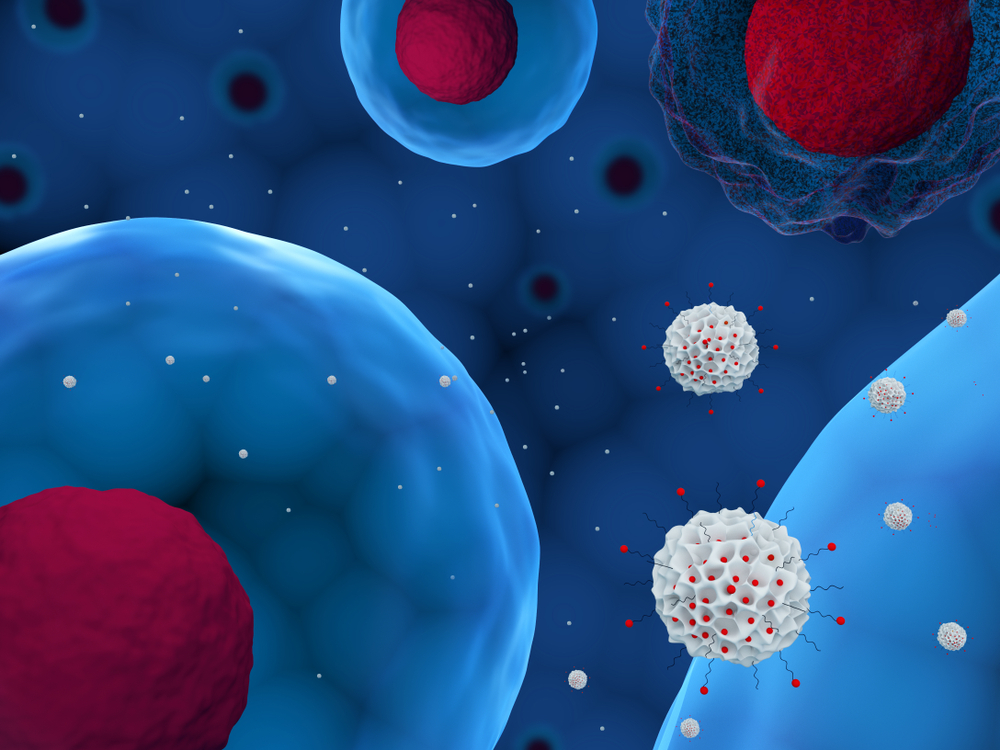Potential Sjogren’s Therapy LOU064 Shows Promise in Early Lab Studies, Healthy Volunteers
Written by |

LOU064, an inhibitor of the Bruton tyrosine kinase (BTK) protein, is able to reduce the activation of B-cells both in lab dishes and in animal models, suggesting it has therapeutic potential in diseases such as Sjögren’s syndrome, a study shows.
These findings were further confirmed in healthy volunteers, who tolerated LOU064 well, demonstrating the treatment’s good safety profile.
Results of the study were shared at the 2019 American College of Rheumatology/Association of Rheumatology Professionals Annual Meeting held in Atlanta, Georgia, in a poster titled, “LOU064: A Highly Selective and Potent Covalent Oral BTK Inhibitor with Promising Pharmacodynamic Efficacy on B Cells for Sjoegren’s Syndrome.”
Autoimmune diseases such as Sjögren’s occur when the body’s immune system attacks its own tissue. This is driven, at least in part, by the abnormal activity of B-cells — which are responsible for producing antibodies. Inhibiting the activity of these cells is one strategy being explored for the treatment of Sjögren’s syndrome.
BTK is a protein expressed only by certain types of immune cells, including B-cells, where it plays a critical role in maturation and activation. In fact, inhibitors of this protein, such as Imbruvica (ibrutinib), Brukinsa (zanubrutinib), or Calquence (acalabrutinib), are already approved and routinely used for certain B-cell lymphomas.
LOU064 is a BTK inhibitor being developed by Novartis as a potential therapy for B-cell-driven autoimmune diseases including Sjögren’s syndrome. In this study, researchers tested the ability of LOU064 to inhibit B-cell activation in several models. They also performed preliminary assessments of its safety in people.
In cells cultured in dishes, LOU064 strongly blocked BTK activity in both B-cells and basophils (another type of immune cell with relevance to Sjögren’s), at similar doses as approved BTK inhibitors.
The therapy also showed high selectivity for BTK, affecting it to a much greater extent than 456 other tested proteins.
In female rats, LOU064 reduced the production of antibodies (specifically a type of antibody called IgM, which is produced at high levels in some people with Sjögren’s) by 96% at a dose of 3 mg/kg.
In a rat model of arthritis, the same dose of LOU064 “induced fast and complete reduction of paw swelling and inhibited histological bone/cartilage erosion and inflammatory infiltrates,” the researchers wrote in their abstract.
LOU064 was also tested in human volunteers without evidence of disease, showing a good safety profile at doses up to 600 mg, with no serious adverse events reported. In this preliminary human study, B-cell production of an activation marker (CD69) was reduced by more than half at doses of 30 mg or higher after 24 hours.
“These data make LOU064 a strong candidate for the treatment of chronic diseases driven by B cell autoimmunity … including [Sjögren’s syndrome],” the researchers concluded.
A Phase 2 clinical trial (NCT04035668) funded by Novartis, is now underway to test the safety and efficacy of LOU064 in 252 patients with moderate to severe Sjögren’s syndrome. The study is currently recruiting participants; more information available here.
Results from this and other trials will help determine whether LOU064 may be a useful treatment for this autoimmune condition.





